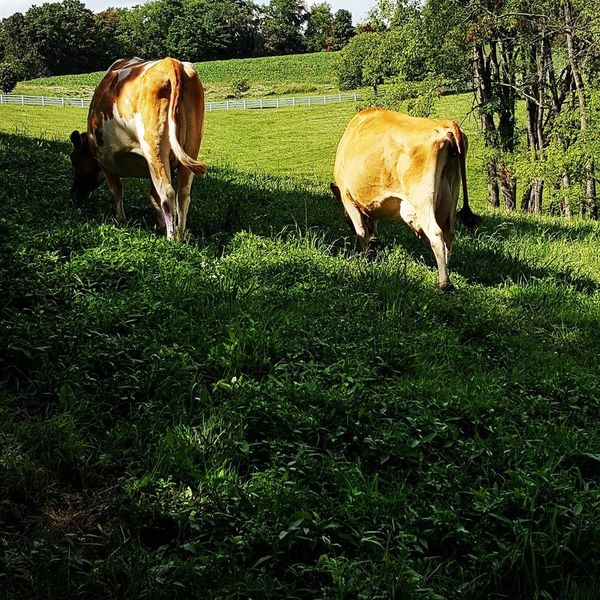According to the World Wildlife Federation Malaysia, Malaysia is one of the 12 countries in the world considered to be “megadiverse.” These 17 countries make up only 10% of the world's land area, but contain around 70% of the world’s biodiversity. On top of this, Malaysia also contains some of the world’s oldest rainforests. Some of which have been evolving for 130 million years. Much of these rainforests are being used for logging or are being cleared for palm oil plantations, which is the main issue that will be discussed here.
I am currently studying Malay, the native language in Malaysia, in preparation for a study abroad trip to Malaysian Borneo that I will take in 2017. I’m sure that as I continue to prepare for the trip and take the trip itself, more issues and more information will surface. I plan to write more on this topic, and other related topics, as my knowledge base grows larger. I find ethics and the environment a fascinating combination to study. I think we should all be considering the ethics of what we do that impacts the environment. We are all on this planet together– humans, orangutans, flowers, birds and all the organisms in between. We all share the world and I think that needs to be considered more often.
Malaysia and Indonesia together produce 80% of the world’s palm oil, the most extensively used vegetable oil in the world. Palm oil is used in a variety of products including soap, bread, lipstick, toothpaste, cookies, chocolate, milk and dog food. It is also used in many brands of peanut butter, and keeps the peanut butter from separating so it doesn’t have to be stirred. The fruit of the oil palm produces cheap and clean oil, and Europe even wants to use it in cars for biodiesel. In theory, palm oil is close to being an ideal crop. Palm oil production has helped many poor farmers pull themselves and their families out of poverty. However, there are many negative impacts that come out of producing this crop.
Forestland is commonly cleared for agriculture by open burning. The penalty for open burning is jail time or fines, but it’s often difficult to find the culprits. Much of the open burning is done secretly or at night. The heavy smoke from the fires causes respiratory problems, and schools sometimes close to keep children from venturing outside. The haze can last for weeks and is hazardous to health. Open burning has also contributed to the levels of carbon being released into the atmosphere, and as a result Indonesia has been added to the list of top three countries responsible for the highest carbon emissions alongside China and the U.S.
Perhaps the ones suffering the most from the slashing and burning of rainforests are the native species that inhabit them. According to the Ministry of Natural Resources and Environment in Malaysia, the best estimate is that there are 170,000 species in Malaysia. According to a study conducted by Koh and Wilcove in 2008, if “primary forest is converted to oil palm, there [would be] a 77% loss in forest birds, and an 83% loss in forest butterflies.” Palm oil companies prefer to clear primary forests. Orangutans are suffering a great deal as a result of palm oil production. Borneo (divided by Indonesia, Malaysia and Brunei) and Sumatra (Indonesia) are where the two endemic species of orangutans are found. When forestland is being cleared for plantations, orangutans are seen as pests and are killed. Deforestation also destroys their reliable food sources. They have always been mainly fruit eaters, but because they have been forced out of many of their native lands, their diets have evolved to include more leaves. According to the WWF, they can only survive in lowlands, where there is fertile soil and plentiful water that allows for prosperous fruit and leaf growth. When these areas are destroyed, they are forced to relocate. Orangutans are gentle and it’s hard for them to survive where they have not historically lived. In Sabah, a Malaysian state on the island of Borneo, some estimate that only 5,000 to 10,000 orangutans are left. In the Malaysian state of Sarawak, also on the island of Borneo, there may only be 2,000 left. There has been a 40% decline in the orangutan population over the last two decades. There are efforts to move orangutans into conserved areas, where they can be protected. However, there is still a long way to go with protecting the endangered species. Tigers, rhinos, elephants and turtles are also critically endangered in Malaysia.
So what does this have to do with you? You probably don’t live in Malaysia and may never see a Bornean orangutan. However, these problems affect everyone. These forests, when left to prosper, also provide clean air and water and help prevent national disasters like landslides, floods, and soil erosion. Many of the plants, animals and other organisms are the basis for traditional medicines. For example, components of the bintangor tree found in the forests of Sarawak were found to be effective against HIV. The carbon footprint of burning land, as I mentioned earlier, also may have an impact on our overall climate. Lastly, everyone should care about preserving our world’s biodiversity. There is so much to be gained from discovering new species and allowing those species to prosper in the wild.
Thankfully, the governments of these southeastern Asian countries are working on making palm oil production more sustainable. However, at the current moment, there is still a lot of work to be done in that direction. Hopefully, palm oil companies will switch to using degraded low-carbon lands to plant oil palm instead of using primary rainforest land. As awareness spreads, hopefully more can be done to protect the biodiverse lands of southeast Asia.
Sources:
http://www.nre.gov.my/ms-my/PustakaMedia/Penerbitan/Biodiversity%20in%20Malaysia.pdf
http://www.orangutan.org.uk/downloads/Palm%20Oil%20Development%20and%20Biodiversity%20Conservation.pdf
https://www.environment.gov.au/biodiversity/conservation/hotspots
http://www.bbc.com/news/world-asia-33729763
http://www.bbc.com/news/world-asia-34242311





















